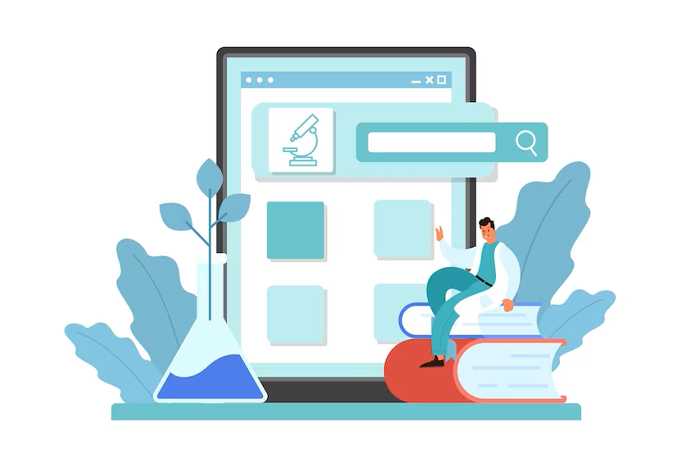Starting an online business as a beginner can be an exciting and challenging journey. The internet has made it possible for anyone with an internet connection to start a business from the comfort of their home. However, with so many options available, it can be overwhelming to decide which one is the best fit for you. In this blog, we will explore some of the best online businesses to start as a beginner.
Affiliate Marketing
Affiliate marketing is a great way to start an online business with little to no investment. It involves promoting other people’s products and earning a commission on any sales made through your unique affiliate link. You can promote products through a blog, social media, or email marketing.

Individuals and businesses can earn passive income through affiliate marketing without having to create and sell their own products. Because affiliates do not have to invest in inventory, shipping, or customer service, it is a low-risk, low-cost way to start an online business. Furthermore, it can be a win-win situation for both the affiliate and the company because the affiliate drives traffic and sales to the company’s product or service while earning a commission.
Affiliate marketing, like any other business model, has advantages and disadvantages. Here are some of the main advantages and disadvantages of affiliate marketing:
Pros:
- Low startup costs: Affiliate marketing has low barriers to entry, which means you can start promoting products or services with minimal upfront costs.
- Passive income: Once you have set up your affiliate links and promoted them to your audience, you can earn passive income from any resulting sales or leads.
- Flexibility: Affiliate marketing offers flexibility in terms of where and when you work, allowing you to fit it around your other commitments.
- No inventory or customer service: As an affiliate, you don’t have to worry about creating or stocking inventory, or dealing with customer service issues.
Cons:
- Commission rates: The commission rates offered by companies may vary and may not be as high as you would like. It’s important to research and choose companies with fair commission rates.
- No control over the product or service: As an affiliate, you don’t have any control over the quality or delivery of the product or service you’re promoting. This means if the product or service is subpar, it may negatively affect your reputation and credibility.
- Dependence on the company’s policies: The terms and conditions of the affiliate program are set by the company offering the product or service. This means you are dependent on the company’s policies and decisions.
- Competition: Affiliate marketing is a popular business model, which means there may be a lot of competition in your niche. You need to work hard to stand out from the crowd and build an audience.
Affiliate marketing can be a great way to get started with an online business for little money. However, it, like any other business model, has advantages and disadvantages. It’s critical to weigh the pros and cons and determine whether affiliate marketing is a good fit for your skills and goals.
E-commerce
E-commerce is a popular online business model that involves the sale of products over the internet. You can begin an e-commerce business by building an online store with platforms such as Shopify or WooCommerce. You can sell physical goods, digital goods, or a combination of the two.

E-commerce can be a great way to expand your business and reach a wider audience. Here are some steps you can take to start selling your products or services online:
Identify your target audience: Determine who your potential customers are and what they are looking for in terms of products or services.
Choose an e-commerce platform: There are many e-commerce platforms available, such as Shopify, WooCommerce, Magento, and more. Consider which platform is the best fit for your business needs and budget.
Create a website: Your e-commerce website should be easy to navigate and provide a great user experience. Make sure to include high-quality images and detailed product descriptions.
Set up payment options: You will need to integrate payment gateways into your e-commerce website so that customers can purchase your products or services. Popular options include PayPal, Stripe, and Square.
Manage inventory: Keep track of your inventory and update your website regularly to ensure that products are available for purchase.
Market your website: Use social media, email marketing, and search engine optimization (SEO) to drive traffic to your website and generate sales.
Provide excellent customer service: Make sure to respond to customer inquiries promptly and provide a great customer experience to build a loyal customer base.
There are many advantages and disadvantages to having an e-commerce website. Here are some of the most common pros and cons to consider:
Pros:
- Increased reach: An e-commerce website can reach customers all over the world, which can help increase your customer base and sales.
- Lower costs: E-commerce websites typically have lower overhead costs compared to brick-and-mortar stores since there is no need to pay for rent or utilities.
- 24/7 availability: Your e-commerce website can be available 24/7, providing customers with the ability to shop at any time.
- Targeted marketing: E-commerce websites allow for targeted marketing campaigns, which can help you reach your ideal customers and increase sales.
- Improved customer experience: E-commerce websites offer a convenient and seamless shopping experience for customers, which can improve customer satisfaction and loyalty.
Cons:
- Security concerns: E-commerce websites are vulnerable to cyber attacks and data breaches, which can compromise customer information and damage your business reputation.
- Shipping and logistics: E-commerce websites require careful management of shipping and logistics to ensure that products are delivered to customers in a timely and efficient manner.
- Technical issues: E-commerce websites require regular maintenance and updates to prevent technical issues that can cause downtime and negatively impact sales.
- Competition: The e-commerce market is highly competitive, which can make it challenging to stand out and attract customers.
- Lack of personal interaction: E-commerce websites lack the personal interaction that customers may value in traditional brick-and-mortar stores.
Overall, while there are many advantages to having an e-commerce website, there are also potential disadvantages that should be considered. By weighing these pros and cons, you can determine whether an e-commerce website is the right choice for your business.
Dropshipping
Dropshipping is a type of e-commerce business in which no inventory is held. You work with a supplier who ships the products to your customers directly. Because you only pay for the products when a customer orders them, you don’t have to invest in inventory up front.

In the case of dropshipping, a retailer doesn’t hold inventory of the goods it sells. Instead, a store will buy a product from a third party and ship it directly to the buyer when it sells it.
Pros and cons of dropshipping are listed below:
Pros:
- Low Overhead Costs: One of the biggest advantages of dropshipping is that it requires very little upfront investment. You don’t have to purchase inventory, pay for storage, or worry about shipping and handling.
- Easy to Start: Since you don’t have to worry about inventory or shipping, setting up a dropshipping business is relatively easy. All you need to do is find a supplier, build a website, and start marketing your products.
- Wide Product Selection: Since you’re not limited by your own inventory, you can offer a wide variety of products to your customers. This can help you reach a larger audience and increase sales.
- Flexibility: Dropshipping allows you to work from anywhere and at any time. As long as you have an internet connection, you can run your business from a laptop, tablet, or even a smartphone.
Cons:
- Lower Profit Margins: Since you’re not purchasing products in bulk, you’ll likely pay a higher price for each item you sell. This can result in lower profit margins compared to traditional retail models.
- Dependence on Suppliers: Your business is only as good as your suppliers. If they’re unreliable or provide poor quality products, your business could suffer.
- Inventory Management: You don’t have control over the inventory, which means that the supplier may run out of stock on popular items or discontinue them altogether.
- Shipping Times: You don’t have control over shipping times or the quality of the packaging. This means that if there are delays or damage during shipping, your business could be negatively affected.
Overall, dropshipping can be a good option for those looking to start an online business with little investment, but it’s important to weigh the pros and cons and do your homework before getting started.
Online Coaching
Online coaching is an excellent way to monetize your expertise in a particular field. You can provide coaching services in areas such as business, health, and personal development. Coaching sessions can be held using platforms such as Zoom or Google meet

Online Course Creation
You can create and sell online courses if you are an expert in a specific field. You can create and sell your courses using platforms such as Teachable or Udemy. Once created, online courses can be an excellent source of passive income.

Content Creation
You can start a blog or a YouTube channel if you enjoy creating content. Your content can be monetized through advertising or sponsorships. Building a following takes time, but once you have one, it can be a great source of income.

Finally, there are numerous online business opportunities for beginners. The key is to find a business model that matches your interests and abilities. It’s also important to remember that creating a profitable online business takes time, effort, and patience. However, with perseverance and hard work, you can succeed in the online business world.









